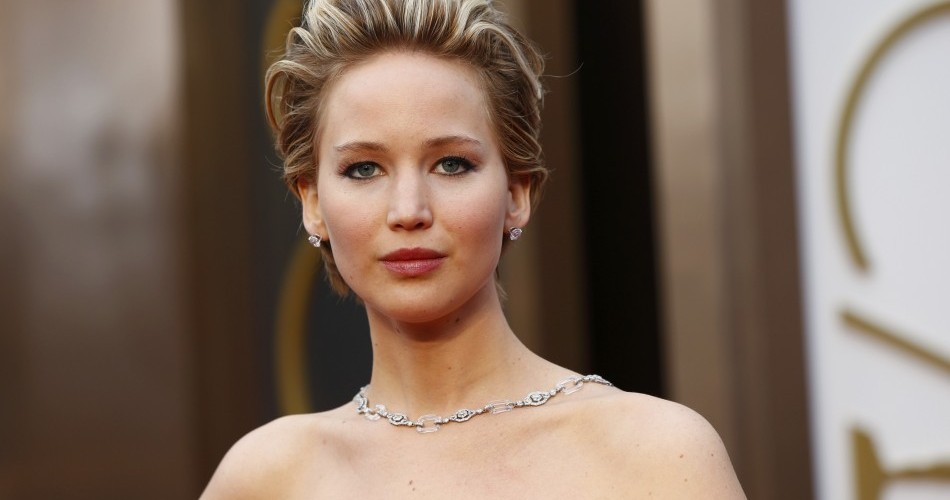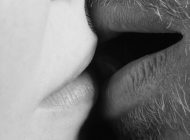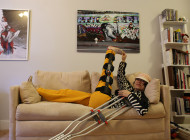When news first broke that private images had been stolen from a number of celebrities in an en masse 4chan free-for-all, 11andmore had a group discussion about our global fascination with celebrity, our right to privacy, and the line between stealing images of our modern-day gods on the street versus taking them straight out of their digital homes.
Jia Jia:
I think we as a society need to chill out about nudity, sex and propriety in general.
Everyone has been naked or done something stupid or explicit at some point in their lives.
The artificial division between your ‘true’ self and your public image was more appropriate back when information could be easily controlled. If our overly prudish society didn’t care about nudity and sex so much, they wouldn’t be such powerful weapons for shaming women (although men aren’t completely immune to the phenomenon either). So I say, only half-glibly, let’s have sexualized images of both men and women as long as their production and distribution is consensual and made for the consumption of both sexes, not just one. And if any famous woman gets embarrassed by a nude pic, I say: don’t be. I’m glad you’re having fun in the bedroom and enjoying your sexuality. I want to do that too. And forget any man or woman who’s going to make us feel bad about that.
Joy:
I agree with Jia Jia in principle, but if I had a sex tape linked to the internet (say, for example, for my junior high students, my family or my professors to stumble upon), I would be very displeased, to say the least.
There is a point here about how our society perpetuates an idealized and unrealistic vision of sexiness.
I think it’s symptomatic of a larger issue; we have created an artificial line between what we see as real/private images and public ones. A person who would happy to pose nude for a Playboy spread might easily be uncomfortable if candid, unedited photos, nude or not, were leaked online. A person who would do a fully nude sex scene in a movie might be terrified of having a real sex tape leaked. Because while we want to look ‘sexy’ (whatever society has told us that means) we don’t want to look real. None of the hairs and fat bunches, silly orgasm faces and the other embarrassing things that we do in real life.
Steph:
I think the issues at hand are ones of choice, control and consent.
Whether a celebrity or not, we should all have the right to exercise some control over how we appear in public, metaphorically and literally.
As Joy pointed out, the person posing for Playboy is choosing to share that image with members of the public. They have control over the creation of that image and they consent to share it. The difference is, when we steal a selfie from a person’s phone, choice, control and consent are all lost. Whether or not that selfie falls into the ‘too realistic’ box shouldn’t be relevant.
I agree that the commercialised/airbrushed images celebrities share of themselves contribute to hyper-unrealistic expectations of beauty and weird ideas about what is and isn’t sexy, but I don’t think that is the question before us today. This is a question of consent, and of privacy. I agree that as a society we need to be less prudish over real life nudity as opposed to ‘Hollywood nudity.’ But those private images of Jennifer Lawrence are not for me to see because they were not taken for me, they were taken for someone else.
Whether celebrity or not, we have the right to exert control over what we do and do not share.
The sharing of a personal picture is more powerful than a hundred carefully curated nudes because it is personal; the sharing of such images beyond the intended recipient leaves that person vulnerable and violated. I don’t care if the other targeted celebrities posed for a thousand semi-nude Playboy covers; those images were made to be shared. The ones that were stolen were not and that should be enough for all of us.
Serena:
I agree that the problem is not about nudity but the blatant act of evil-doing and invasion of privacy.
This kind of assertion of power is terrorizing.
My friend Lena Chen – former Harvard sex blogger – just wrote a brilliant response through her own story. She is still dealing with the after-effects of her ex posting nude photos of her on the Internet back in 2008. She says:
“I have experienced the full spectrum of online misogyny: the vengeful violation by someone I once trusted and the invasion of privacy by an obsessed but unknown stalker. In both cases, the perpetrators solicited the approval and attention of strangers and could not have succeeded if their efforts weren’t legitimized by mainstream media and public opinion. It is only now, with a public discussion about cyber harassment and online misogyny, that everyone else is learning what I realized six years ago: that we live in a sick society and the sick people are not young women like me. I was just collateral damage, and so is any woman whose freedom to exist is threatened because she happened to trust or get targeted by someone who couldn’t stand to let her live her life.”
Phileas:
I feel like the big problem with the Great Naked Celebrity Scandal is not the ‘naked,’ but the ‘celebrity’ part.
It never really made sense to me that certain people should get so much spotlight for no reason other than being attractive and having some acting skills. It really feels to me like people use their ability to follow the lives of celebrities as a substitute for resolving their own problems. Instead of thinking, say, “I have a drug addiction problem and I’m going to deal with it,” they might think: “I have a drug addiction problem, but hey, so does Lindsay Lohan and she’s cool, right?” If I were to take this to an extreme, I’d say that entertainment media is a way of reinforcing the status quo by substituting inconsequential information for people’s genuine concerns.
Jia Jia:
I think people’s obsession with celebrities demonstrates a fundamental psychological paradox—we want to love ourselves but often end up hating ourselves for not being how we think we need to be.
Celebrities are simultaneously our ideals and our punching bags.
Beautiful, glamorous, rich, handsome or fat, has-been, slut, or freak. A friend of mine once said that Hollywood stars are like Greek Gods, beings that we want to idealize and idolize as well as trash, in order to bring them down to ‘our level.’
The media targets this paradox and reinforces it. In this article about the way language is used to put women down, what struck me wasn’t so much the words themselves, but the fact that specific meanings associated with them get exacerbated and perpetuated by the media, ultimately twisting what the word means. For example, the word ‘fierce’ is often “reserved for women of colour, and reinforces the ‘angry black woman’ stereotype.” Personally, I rather like the word ‘fierce.’ The same way that I like ‘spunky’ (another word that’s critiqued). I think of Beyoncé when I think of the word ‘fierce,’ i.e. gorgeous AND strong. And I think stylish and strong when I think ‘spunky.’ My male co-worker told me today that the tiger-print shirt I wore looked awesome and fierce. I approved of his sense of style.
Steph:
Phileas’s point is really interesting – I hadn’t even questioned why people were interested in the images in the first place, because celebrity is so ingrained a concept within our society. From Angelina Jolie’s marriage to Kate Middleton’s baby, we don’t question why people should be interested, we just passively accept that they are. I suppose, at least, the interest and furor these images have sparked could help ordinary women in the future, women like Serena’s friend, because they bring attention to the issue of non-consensual image sharing. The positive that I’ve taken from the media debate is that it has pretty much sided with the women wronged here: the images were private and they haven’t changed how we think about the women pictured. No one is slut shaming Jennifer Lawrence, and no one thinks less of her for having taken pictures of herself for her partner. Once a public debate has been had I think it makes it easier for ordinary women caught in a similar situation who come after.
It does disturb me that the leaks focused exclusively on women, though.
Exposing these ‘unattainable’ women in such a literal way is a really effective method of reducing them and putting them in their place, while making whoever leaked them feel powerful.
Daniel:
If it were just one person with a camera or a hack, it would be so easy for the rest of us to cast the person as an insane stalker. But if a lot of us are doing it, it’s harder to judge.
The other day, meeting up with some friends in Central Park, I passed a crowd with cameramen and TV station vans crowding the entrance to a synagogue. My first thought was that someone famous was getting married, and how absurd it was that so many people were trying to sneak a peek at an intimate event. But when my friends were running late, I joined the crowd, a curious hypocrite. But then, after googling ‘wedding 51st street temple’ and overhearing whispers from the crowd, I realized, “Oh my God. I mistook Joan Rivers’s funeral for a wedding!”
So, it got me thinking. I tried to reject society’s attraction to celebrities, yet slowly gave in during the funeral. Joan Rivers struggled as a female comedian to change how society treated women, yet still felt insulted that Johnny Carson flirted with every women he saw, except her. And while I’m not suggesting that my singular struggle is of the same order of magnitude as Joan Rivers’s entire life struggle, I think we both had to face a similar obstacle: the crowd, the people around me during the event and the men around her during her life.
The same can be said for the celebrity photo hacker. A lot of people will view it as an isolated incident caused by a lone renegade and easily dismiss its morality. Yet we will continue to talk about who our role models are, how much we admire them, how much we would like to have a beer with them.
People feel attached to characters in stories, and celebrities are the characters who exist in our world. We feel we can almost reach out and touch them if we really want to.
Even though we are not all as guilty as the hacker, we all have the same initial tendency. And if enough of us cross boundaries without thinking, no one will say anything. Except maybe someone like Joan Rivers.
By Jia Jia, Stephanie, Joy, Serena, Daniel and Phileas
Tags: celebrity feminism in the news privacy women's rights
























1 Comment
Just stumbled upon this long after the fact . . . . Thanks for this thoughtful conversation! I think it might be worth it to have a follow-up conversation on this topic – long after the public as moved on to the next sensational thing. I agree that there are deeper/universal issues at play here – and worth a re-visit from your team, and readers.